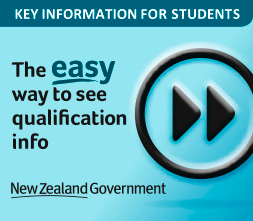Search
Programme overview
In this practical, field-based programme, you will develop the skills required to become a competent, informed, and reflective early childhood teacher who is committed to young children and their learning and development.
You can earn while you learn, by working at least 12 hours a week in an early childhood centre from the beginning of your degree, plus spending 2 days a week on campus, where you will learn to relate your teaching practice to theory. Our staff are always on hand to provide pastoral care, and there are also numerous student support services available on campus.
You'll also experience a range of practicum placements through 10 week placements at your own early childhood centre and 12 week placements at our designated early childhood centre over three years. When you graduate, you'll be eligible to become a registered teacher in Aotearoa New Zealand.
Highlights
- Become a qualified early childhood teacher: you will be able to apply for teacher registration with the Teaching Council of Aotearoa New Zealand;
- Emphasis on teaching practice: work (paid or voluntary) in a local licensed early childhood centre for at least 12 hours per week during the programme. This means that there will be a 50:50 ratio of theory to practice, ensuring our graduates are industry ready.
- Experience teaching in a range of centres: each year you will also take part in a practicum, at an early childhood education centre for 37.5 hours per week;
- Our graduates had an employment success rate of over 90% in the past years;
- A focus on research: you will design an action research project in an area of interest, carry it out during your work experience, then reflect upon how it’s impacted on your practice
- A strong emphasis on mātauranga Māori and the Aotearoa New Zealand early childhood curriculum document, Te Whāriki, with a commitment to a bicultural and sociocultural learning approach
Professional Work Experience Requirement
You will complete at least 12 hours (paid or voluntary) work experience per week, over 22 weeks during term times. If you are not currently employed, we can guide you to locate an appropriate centre close to your home.
Practicum
Year One: You will complete one 2-week practicum in your first semester at the centre where you are on work experience. You will also complete one four-week practicum at the end of the year at another centre, chosen by Unitec in accordance with Teaching Council requirements.
Years Two and Three: You will complete two four week practicum per year, one in your home centre and one in another centre, as chosen by Unitec in accordance with Teaching Council requirements.
Admission requirements
What you will need to study this programme.
Domestic students
International students
Courses and timetables
For more details on the courses including timetables, please click on the course names below.
Debug
| Courses | Credits | Aim |
|---|---|---|
| Hauora(EDUC5000) | 15.0 credits (0.125 EFTS) | This course examines models of health and well-being to develop the skills and knowledge of effective practices to promote holistic health and well-being for self and others within the learning community. |
| Introduction to Te Whariki(EDUC5001) | 15.0 credits (0.125 EFTS) | This course introduces Te Whariki as an integrated curriculum to underpin the facilitation of learning and development. |
| Human Development(EDUC5002) | 15.0 credits (0.125 EFTS) | This course explores theories of human development and analyses the implications for practice in early childhood contexts in Aotearoa. |
| Integrated Curriculum(EDUC5003) | 15.0 credits (0.125 EFTS) | This course develops knowledge and understanding of play-based learning within an integrated curriculum. |
| Partnership, Perspectives and Policy(EDUC5004) | 15.0 credits (0.125 EFTS) | This course examines historical and socio-cultural contexts of early childhood education in Aotearoa, introducing the policy and legislation, and the importance of Te Tiriti o Waitangi based practices in early childhood education. |
| Te Kete Manaaki Tangata(EDUC5005) | 15.0 credits (0.125 EFTS) | This course develops understandings of te reo me nga tikanga Māori in relation to manaaki tangata. |
| Teachers as Partners(EDUC5006) | 15.0 credits (0.125 EFTS) | This course develops knowledge, skills and attitudes required for early childhood kaiako to work in professional partnership with kaiako, whānau and community. |
| Introduction to Professional Experience(EDUC5007) | 15.0 credits (0.125 EFTS) | This course supports students in partnership with an early childhood service to demonstrate teaching and professional practices that recognise the integrated nature of the learning of tamariki. |




